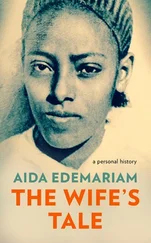One night the two men were sitting drinking wine after dinner and, as Elers recalled, ‘congratulating ourselves that we had arrived safely … in the country of the Coorga Rajah … when, looking through the tent doors, we saw the forest suddenly illuminated with torches and many men carrying all sorts of game on Bamboos’, including cheetahs, jackals, tigers, foxes, a boa constrictor sixteen feet long, eleven elephants’ tails and three carp.
The next day the Rajah’s green and red striped tents were pitched nearby and from these were sent over to the British officers presents of ‘backgammon boards of the handsomest sort, inlaid with ebony and ivory’ and a chess board with pieces of ‘the finest kind, carved in ivory’. The Rajah himself then appeared wearing Indian pantaloons but ‘the rest of his dress was English including English boots’.
‘In one part of the conversation,’ Elers wrote, ‘I admired Colonel Wellesley’s quickness in detecting [the interpreter] giving an erroneous translation of a speech of his to the Rajah. The Colonel was clever in quickly acquiring languages but spoke none very correctly.’ 4
The Colonel settled down to his duties in Seringapatam if not with enthusiasm certainly with diligence, restoring order to a regiment which, while in the incapable hands of his second-in-command during his absence, had become notorious for drunkenness and quarrelling. He wrote letters and memoranda on a familiar variety of subjects, dealing with breaches of discipline and occasional criminal conduct, ‘scenes of villainy which would disgrace the Newgate Calendar’, 5involving commissaries – a breed of men, so he once threatened, he would hang at the rate of one a day were he ever to be in a position to do so – and even implicating army officers, one of whom had been selling the East India Company’s supplies of saltpetre, which was used in the manufacture of gunpowder, as well as copper bands stripped from the pillars of the Sultan’s palace, while another had been disposing of new firearms from the weapons store and replacing them with ancient firelocks bought cheaply from native dealers. Also involved in this illicit arms dealing was an elderly lieutenant-colonel of previously good character who had been court-martialled and ruined. Taking pity on him, Colonel Wellesley, in a long and carefully worded letter, offered a plea of mitigation in view of the old man’s former good conduct, asking for a small pension to enable him – once he had repaid the Company’s officials the sums due to them – ‘to support himself on account of his long services and his present reduced situation’. 6
Wellesley remained equally sympathetic towards the feelings and interests of the natives, though he still did not entertain a very high opinion of their probity. He came down firmly on soldiers who maltreated them, taking the opportunity presented by the case of an officer who had merely been reprimanded for flogging an Indian for refusing to supply him with free straw for his horse, to remind all ranks that they were ‘placed in this country to protect the inhabitants, not to oppress them’. He made it clear to headquarters, too, that he strongly disapproved of such disgraceful behaviour being so lightly punished. When a lieutenant, who had forced a group of Indians to hand over money by making them stand in the sun with heavy weights on their heads, and who was believed to have flogged one of them to death, was given no more severe a punishment than a reprimand and six months’ suspension of pay, he protested against such leniency, emphasizing the disgrace which would fall upon the whole army were the man not to be discharged from the service. 7
Stern as he could be on occasions, he was a friendly and easy companion in the officers’ mess in the Sultan’s palace, tolerant without being over-indulgent of occasional drunkenness, believing a drunken quarrel is very bad, and is always to be lamented, but probably the less it is enquired into the better’. 8He did not drink as much himself as he had done in Calcutta and as officers customarily did in India, where half a bottle of Madeira a day, with a complementary amount of beer and spirits, was considered abstemious. But he drank four or five glasses of wine with his meal and about a pint of claret afterwards. It was noticed, however, that he was quite incapable of distinguishing a fine wine from a vin ordinaire. Nor was he much interested in food, though he had a marked partiality for rice and for roast saddle of mutton with salad.
He was very even in his temper [Captain Elers recalled], laughing and joking with those he liked, speaking in his quick way, and dwelling particularly upon the few (at that time) situations he had been placed in before the enemy, the arrangements he had made, and their fortunate results, all of which were applauded by his staff … This generally formed the topic of conversation after dinner. 9
The Colonel, it was also said of him, liked to be in the company of ladies whenever he could; and there was no doubt that they in turn found him attractive. He was not considered to be conventionally handsome; but he was alert and vital, attentive and eager; his body was lithe and strong, and the lingering gaze of those ‘clear blue eyes’ was pleasantly unsettling. He had a ‘very susceptible heart’, a fellow officer thought, ‘particularly towards, I am sorry to say, married ladies’. There was, for example, a Mrs Stephenson, ‘pretty & lively’, who had special apartments assigned to her at headquarters; and Mrs Gordon and Mrs Coggan; and the wife of another officer, Captain J.W. Freese, ‘his pointed attention’ to whom ‘gave offence to, not her husband , but to an aide-de-camp [Captain West] who considered it highly immoral and indecorous, and a coolness took place between him and West and they did not speak all the time I lived with the Colonel. Lady Tuite, then Mrs Goodall, interfered in the same officious way, which the Colonel did not forget; for, in after times, upon meeting him at a large party, when she held out her hand to shake hands with him, he put both his hands behind his back and made a low bow’.* 10
When there were no ladies to entertain at Seringapatam or to talk to with brisk intimacy, Colonel Wellesley would enjoy a game of billiards; but, having steadfastly set his mind against gambling, he still did not play cards for money, nor did he enjoy the idle chat of fellow officers, preferring to talk of the business of soldiering, his own experiences of it, and of the affairs, successes and misdemeanours of the East India Company and its officials. He could not hide his love of gossip, though; and when amused his loud whoops of laughter, ‘easily excited’, would reverberate around the room, ‘like the whoop of a whooping-cough often repeated’†. 11He enjoyed the mess’s amateur theatricals well enough to send for the texts of plays suitable for officers and their ladies to perform. 12
From time to time, when his duties permitted, he clambered up into a ‘very handsome howdah, entirely covered with superfine scarlet cloth, hanging within two feet of the ground’, and went hunting antelope with the Sultan’s leopards which, together with their keepers, he maintained at his own expense, since the Government declined to pay for them. 13
Often he would go for long, fast rides in the countryside for the peaceful administration of which he was responsible. It was essential to take exercise in India, he thought, just as it was necessary ‘to keep the mind employed’, to eat moderately, drink little wine, and, if possible, to keep in good company with the world. The last is the most difficult,’ he decided, ‘for there is scarcely a good-tempered man in India.’ 14
He was all the better tempered himself when news reached him that he had been promoted major-general. He had long hoped for this, once telling Captain Elers that to achieve that rank was his ‘highest ambition’, 15and he had been much disappointed on his way back to Seringapatam from Bombay to find, on eagerly looking through the latest Army List, that his own name had not been included in a roll of colonels to be promoted. In April 1802, however, the promotion came through at last, much to the satisfaction of Marquess Wellesley, who had continued to regard his brother’s earlier failure to obtain it as a slight upon his own dignity and who was to consider a decision to reduce Arthur’s allowances as commander of the troops in Mysore, Malabar and Canara as another affront, a ‘most direct, marked and disquieting personal indignity’.
Читать дальше











